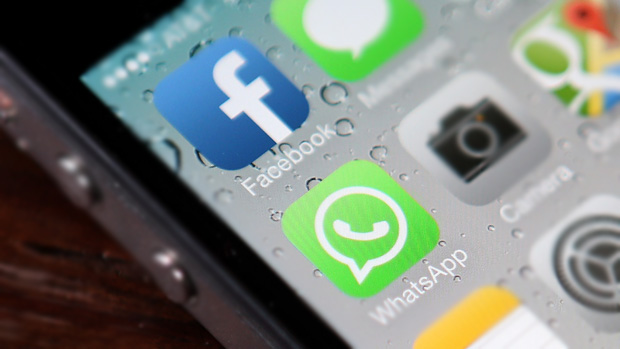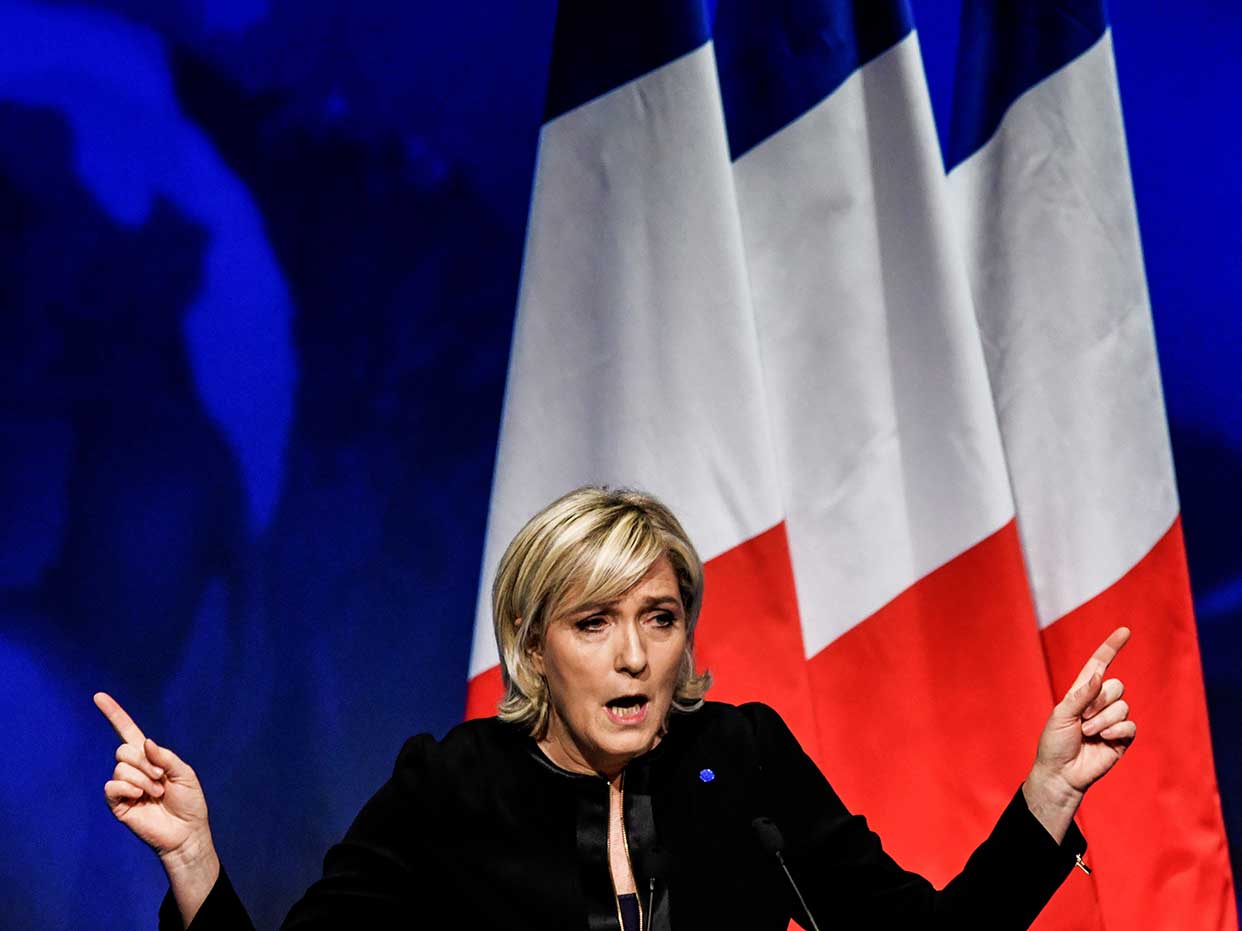Amber Rudd: WhatsApp gives terrorists secret place to hide
Home Secretary says intelligence services must have access to encrypted messaging services following Westminster terrorist attacks

A free daily email with the biggest news stories of the day – and the best features from TheWeek.com
You are now subscribed
Your newsletter sign-up was successful
Intelligence agencies must be given access to encrypted messaging services, even at the cost of compromising privacy, says Home Secretary Amber Rudd, following reports that Westminster attacker Khalid Masood connected to messaging app WhatsApp minutes before he killed four people last Wednesday.
Speaking on the BBC's Andrew Marr Show yesterday, Rudd said it was "completely unacceptable" that terrorists can use messaging systems to avoid surveillance.
She added: "There should be no place for terrorists to hide. We need to make sure that organisations like WhatsApp - and there are plenty of others like that - don't provide a secret place for terrorists to communicate with each other.
The Week
Escape your echo chamber. Get the facts behind the news, plus analysis from multiple perspectives.

Sign up for The Week's Free Newsletters
From our morning news briefing to a weekly Good News Newsletter, get the best of The Week delivered directly to your inbox.
From our morning news briefing to a weekly Good News Newsletter, get the best of The Week delivered directly to your inbox.
"It used to be that people would steam open envelopes or just listen in on phones when they wanted to find out what people were doing, legally, through warrants. We need to make sure that our intelligence services have the ability to get into situations like encrypted WhatsApp."
All messages sent on WhatsApp have end-to-end encryption, meaning they are unreadable if intercepted by anyone, including law enforcement agencies and even the app itself.
While Masood's phone is believed to have connected with WhatsApp, "police may not know what, if anything, was communicated", says the BBC.
Rudd said she was not opposed to encryption services, because they allow banks, businesses and families to communicate safely, but added that she believed internet companies must do more to tackle extremism online.
A free daily email with the biggest news stories of the day – and the best features from TheWeek.com
She has summoned WhatsApp, Facebook, Google and other online companies to a meeting at the Home Office on Thursday, when she will call time on extremists "using social media as their platform", reports The Telegraph.
Last week's attack "looks set to reignite the privacy-versus-secrecy debate in Europe," says Reuters, "especially after warnings from security officials that Western countries will be increasingly targeted as Islamic State loses ground in the Middle East".
Labour leader Jeremy Corbyn said there had to be a balance between the "right to know" and "the right to privacy".
Former Metropolitan Police deputy assistant commissioner Brian Paddick, now home affairs spokesman for the Liberal Democrats, said: "The real question is, could lives have been saved in London last week if end-to-end encryption had been banned?"
"All the evidence suggests that the answer is no."
-
 5 cinematic cartoons about Bezos betting big on 'Melania'
5 cinematic cartoons about Bezos betting big on 'Melania'Cartoons Artists take on a girlboss, a fetching newspaper, and more
-
 The fall of the generals: China’s military purge
The fall of the generals: China’s military purgeIn the Spotlight Xi Jinping’s extraordinary removal of senior general proves that no-one is safe from anti-corruption drive that has investigated millions
-
 Why the Gorton and Denton by-election is a ‘Frankenstein’s monster’
Why the Gorton and Denton by-election is a ‘Frankenstein’s monster’Talking Point Reform and the Greens have the Labour seat in their sights, but the constituency’s complex demographics make messaging tricky
-
 Home Office worker accused of spiking mistress’s drink with abortion drug
Home Office worker accused of spiking mistress’s drink with abortion drugSpeed Read Darren Burke had failed to convince his girlfriend to terminate pregnancy
-
 ‘The next campaign to save France should start today’
‘The next campaign to save France should start today’Instant Opinion Your digest of analysis from the British and international press
-
 In hock to Moscow: exploring Germany’s woeful energy policy
In hock to Moscow: exploring Germany’s woeful energy policySpeed Read Don’t expect Berlin to wean itself off Russian gas any time soon
-
 Were Covid restrictions dropped too soon?
Were Covid restrictions dropped too soon?Speed Read ‘Living with Covid’ is already proving problematic – just look at the travel chaos this week
-
 Inclusive Britain: a new strategy for tackling racism in the UK
Inclusive Britain: a new strategy for tackling racism in the UKSpeed Read Government has revealed action plan setting out 74 steps that ministers will take
-
 Sandy Hook families vs. Remington: a small victory over the gunmakers
Sandy Hook families vs. Remington: a small victory over the gunmakersSpeed Read Last week the families settled a lawsuit for $73m against the manufacturer
-
 Farmers vs. walkers: the battle over ‘Britain’s green and pleasant land’
Farmers vs. walkers: the battle over ‘Britain’s green and pleasant land’Speed Read Updated Countryside Code tells farmers: ‘be nice, say hello, share the space’
-
 Motherhood: why are we putting it off?
Motherhood: why are we putting it off?Speed Read Stats show around 50% of women in England and Wales now don’t have children by 30